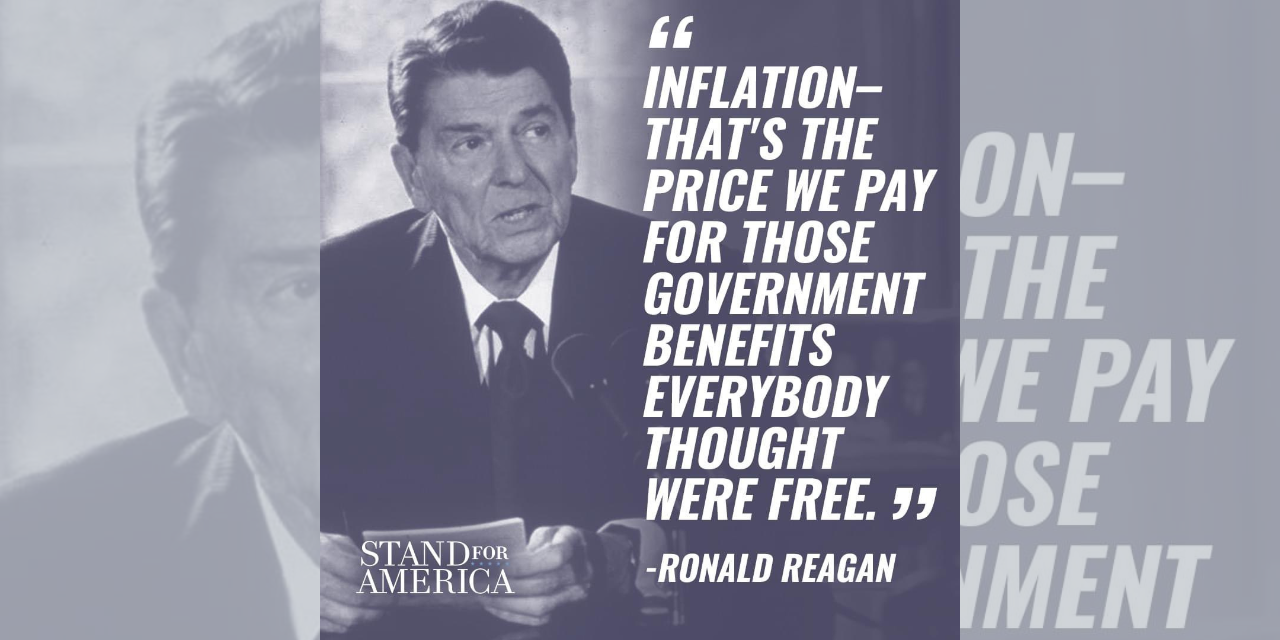Government reports tend to quantify and confirm what we already know.
Wednesday’s news that the Consumer Price Index jumped 9.1% in the last year reflects the soaring and frustrating costs of modern American life. The price of living is at a 40-year high, pushing many individuals and families to the economic brink.
The economist Milton Friedman called inflation “taxation with legislation.” Ronald Reagan once colorfully described it “as violent as a mugger, as frightening as an armed robber and as deadly as a hit man.” They were both right.
In less eloquent terms, it’s downright maddening.
Each time we look at our investments, go to the gas station, or check out at the grocery store and pay considerably more for what we bought for much less a year ago, our blood pressure goes up and our savings go down.
But is there a better way to respond to these days of inflation and economic uncertainty?
Whenever challenging times come, it can be helpful to remember what the writer of Ecclesiastes acknowledged: “Whatever is has already been, and what will be has been before” (3:15).
Self-consumed modern man tends to think everything is unprecedented, but only because they’ve never seen or lived through it themselves. Climate alarmists do this all the time, proclaiming one year the “hottest” or “coldest” ever – ignoring the fact that records have only been kept for 150 or so years.
Concerns about inflation and economic uncertainty are detailed in the Bible.
The problem of decreasing purchasing power seems to be alluded to in the book of Haggai, where we read, “He who earns wages, earns wages to put into a bag with holes” (1:6).
Inflation also occurred during biblical times when people would shave silver and gold off coins. It was a practice called “clipping,” and the extra metal would be melted and formed into counterfeit coins. Governments were even known to dilute gold and silver coins with other much less expensive metals.
Incidentally, this is why coins have ridges on the edges – to prevent similar “clipping” today.
Other deceptive tactics involved corrupting scales on which some coins were weighed in an effort to defraud and deceive. This is why we read the warning in Leviticus, “You shall do no wrong in judgment, in measures of length or weight or quantity” (19:35).
We also read in Deuteronomy 25:13-15:
“You shall not have in your bag two kinds of weights, a large and a small. You shall not have in your house two kinds of measures, a large and a small. A full and fair weight you shall have, a full and fair measure you shall have, that your days may be long in the land that the Lord your God is giving you.”
Some may qualify all of this as cold comfort – that was then, and this is now. But if we believe the Lord is aware of our circumstances and in control of our lives, can we not simply bring our cares, concerns and frustrations to Him?
As Christians, we pray and work toward the election of godly and wise leaders who will govern with biblical wisdom. Monetary policy can be complex. But discouraging work, thereby reducing the availability of goods and services while simultaneously distributing “free” money the government doesn’t have to people who haven’t earned it, is a recipe for inflation.
Reckless economic policies are diametrically at odds with the wisdom found in the Scriptures. So, placing our current frustrations at the Lord’s feet is a good way to temper our tempers. But tightening our proverbial spending belts, cutting back on non-necessities and continuing to serve others is also a practical way to move forward.
There’s a reason the Bible mentions money more than any other topic. It’s a practical subject that can concern us, but it doesn’t and shouldn’t consume us. Paul’s counsel to Timothy applies to both those with money and without it:
“Instruct those who are rich in the present age not to be arrogant or to set their hope on the uncertainty of wealth, but on God, who richly provides us with all things to enjoy” (1 Timothy 6:17).






